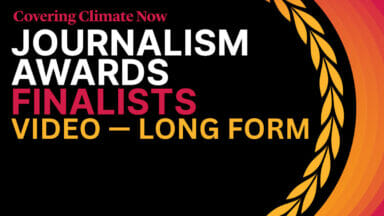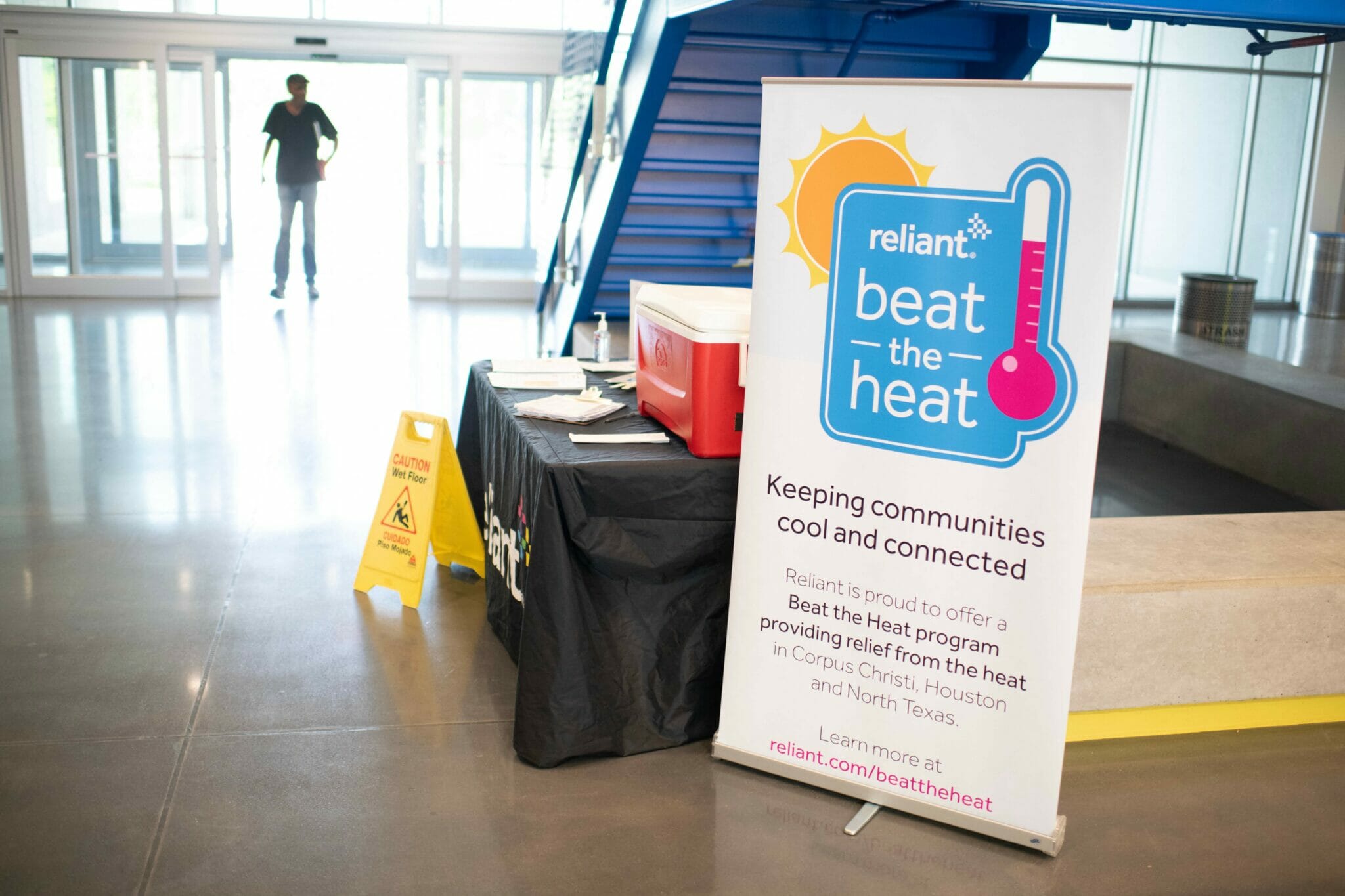Sign up to receive our weekly newsletter
“When heat comes, it’s invisible,” opens Jeff Goodell’s new book, The Heat Will Kill You First. The veteran journalist and Rolling Stone correspondent makes a searing case that most of us think about extreme heat all wrong, and to disastrous effect. Like his previous book, The Water Will Come, this one is essential reading for climate journalists everywhere.
Did you know, for example, that heat already kills nearly twice as many people a year as guns? And that death toll is bound to increase as global temperatures continue their inexorable rise. Monday, July 3, was the hottest day on Earth since humans began measuring temperatures — that is, until Tuesday, July 4, replaced it in the record books.
Reams of climate science reports have warned that if global temperatures rise by 2 degrees Celsius — 3.6 degrees Fahrenheit — then ice sheets will collapse, droughts will kill crops, and famine will follow. “But to nonscientists — which is to say, most humans on the planet — 3.6 degrees [F] of warming does not sound dangerous at all,” Goodell writes. “Who can tell the difference between a 77-degree day and an 81-degree day?” Therein lies the central challenge to journalists: How to not let the smallness of numbers like “3.6 degrees” belie their immense danger.
“The kind of heat I’m talking about here is not an incremental bump on the thermometer,” he adds. “It is heat as an active force, one that can bend railroad tracks and kill you before you even understand that your life is at risk.”
News coverage has a track record of under-reporting heatwave deaths. Death certificates tend not to name “extreme heat” as a cause of death; only later do epidemiological studies make an accurate count. In 2003, for example, a six-week heatwave roasted an unprepared Europe. In Paris, morgues overflowed; bodies were stacked in the street. Initial reports put the death toll at 15,000, a figure journalists repeated for years. But statisticians later concluded that, in fact, more than 70,000 people had died. (In one of the first climate attribution studies, researchers found that climate change had doubled the likelihood of such an extreme heatwave.)
The Heat Will Kill You First has gotten rave reviews, and it offers many lessons for journalists covering not only this year’s heatwaves but the evergreen news that global temperatures will continue to rise as long as humanity burns fossil fuels.
One key point: Heat is a climate justice story. “If you’re poor,” writes Goodell, “you swelter in an uninsulated apartment or trailer with no air-conditioning or an old, inefficient machine that you can’t afford to run. You can’t move somewhere cooler because you’re afraid of losing your job and you don’t have the savings to start over.”
Responding to the news that July 3 was (at least until the following day) the hottest day ever recorded, climate attribution scientist Dr. Friederike Otto declared: “This is not a milestone we should be celebrating… It’s a death sentence for people and ecosystems everywhere.” It’s up to journalists to make those stakes clear.
From Us
Misinformation. In a press briefing co-hosted by Covering Climate Now and Climate Action Against Disinformation, journalists will learn how to cover a disinformation campaign without amplifying it and think through ways to inoculate their readers against misinformation. Join CCNow and CAAD on Thursday, July 13, at 11am US Eastern Time. RSVP.
CCNow job! We’re hiring a Director of Training to develop our overall training strategy for newsrooms in the US and around the world. Apply by July 15. View the job.
En español. CCNow’s “Making the Climate Connection” guide is now available in Spanish. Check it out.
The Finalists: Video Long Form
We’ll be previewing Covering Climate Now Journalism Award finalists’ stories over the next few months. 
This week, we bring you video pieces that step back from the headlines to observe broader trends on climate. We see how sea-level rise, intensive farming, and political inaction create a community in crisis in Brazil’s Bailique archipelago; how British citizens are using the law to hold government and companies accountable for fossil fuel emissions; how pioneering ideas could save coral reefs in the Maldives; how climate change in northwest Nigeria disproportionately affects vulnerable communities; how the Global North has failed drought-ravaged Somalia; how German activists are fighting to protect a village threatened from coal mining expansion; and lastly, an explainer on the role that ocean plays in absorbing heat, and the dangers that can pose. See the long form video finalists.
Noteworthy Stories
Conflicting goals. Over 1,500 lobbyists that represent fossil fuel companies are simultaneously employed by universities, cities, and environmentals organizations with goals of fighting climate change, according to a new database compiled by a new organization, F minus. For example, the city of Baltimore, Md., shares a lobbyist with ExxonMobil, which is a defendant in a lawsuit Baltimore has brought against it and other fossil fuel companies for contributing to climate-related harm. By Oliver Milman at the Guardian…
- See the lobbyist database for local story angles to pursue.
Climate betrayal? The UK is working on plans to drop the £11.6 billion ($14.8 billion) in climate funding promised to developing countries at COP26, according to a leaked briefing, as the government continues to underfund its climate pledge. In response, a spokesperson for Downing Street stated that the government remains committed to the funding. By Helena Horton at the Guardian…
Passing 1.5. As the world breaks record land and sea temperatures amidst a range of extreme weather events, climate experts say the goal of keeping temperature rise to 1.5 degrees C is becoming less realistic. Meanwhile, climate experts are voicing concern over insufficient global progress in the run up to COP28 climate talks in November. By David Stanway at Reuters…
- See a roundup of the most notable heatwaves of 2023, updated on July 5, by Heatmap.
Changing travel. Global heating impacts are expected to change beach and ski tourism, peak travel seasons, and more. This will likely lead to economic hardship for millions of tourism workers and their families in developing countries. By Simon Kuper at the Financial Times…
Skip it. Tourism is soaring in Antarctica, a fragile ecosystem with no human residents. The rise in visits to the continent threatens the ecosystem and contributes to climate change, leading writer Sara Clemence to urge vacationers to “take Antarctica off your travel bucket list.” Read it at The Atlantic…
Via Twitter
CCNow is tracking stories about the record-breaking surge in extreme heat and coverage that sheds light on the broader implications for people and the planet.
On Monday, the Earth registered the hottest day since records began. And then on Tuesday, the Earth broke that record. The news followed weeks of hotter than normal sea surface temps, weird jet stream patterns and early heat waves. https://t.co/x5B8DA9sLM
— Covering Climate Now (@CoveringClimate) July 6, 2023
Resources & Events
Air quality. For US reporters tracking wildfire smoke and other pollutants, AirNow reports air quality by zip code using the official US Air Quality Index. Take me there.
COP28. The Center for Climate and Energy Solutions is holding a webinar on how the Global Stocktake at COP28 can “help deliver a meaningful and effective response” to the challenges of climate change. July 10-12. RSVP.
Events. Clean Energy Wire tracks events, webinars, and more on energy transition, climate policy, and journalism. Browse now.
Industry News
Ignoring climate. Just 5% of national TV segments in the US connected the record heat across Texas and other parts of the American Southwest to climate change from June 15-29, according to a Media Matters analysis. Here’s how ABC News meteorologist Ginger Zee successfully made the connection on June 23: “Climate Central, a group that looks at how human-induced climate change impacts things like heatwaves, says that the one, at least through the weekend, would be five times more likely for heat like that because of climate change.” See the study.
Climate collaborations. In an interview, Rachel Glickhouse, senior content partnerships manager at Grist, talks about best practices for joint climate reporting projects, as well as the value of data-driven projects and international collaborations. Read it.
Jobs, etc.
Jobs. The Boston Globe is recruiting a climate science editor. The Earth Institute at Columbia University is looking for a content manager. DeSmog is looking for part-time freelance editors, with a pay range of US$50-65/hr. To learn more or apply, email jobs@desmog.com with interest, experience, and availability.
Awards. The German Embassy in Egypt is accepting submissions for the Cairo Climate Talks Environmental Journalism Award 2023. Apply by July 31. Learn more.
Welcome! The following media outlets have joined the CCNow collaboration: Ambrook Research, The Bureau of Investigative Journalism (UK), China Dialogue Trust (UK/China), Currently, MindaNews (Philippines), Pin Africa (Congo/US)
